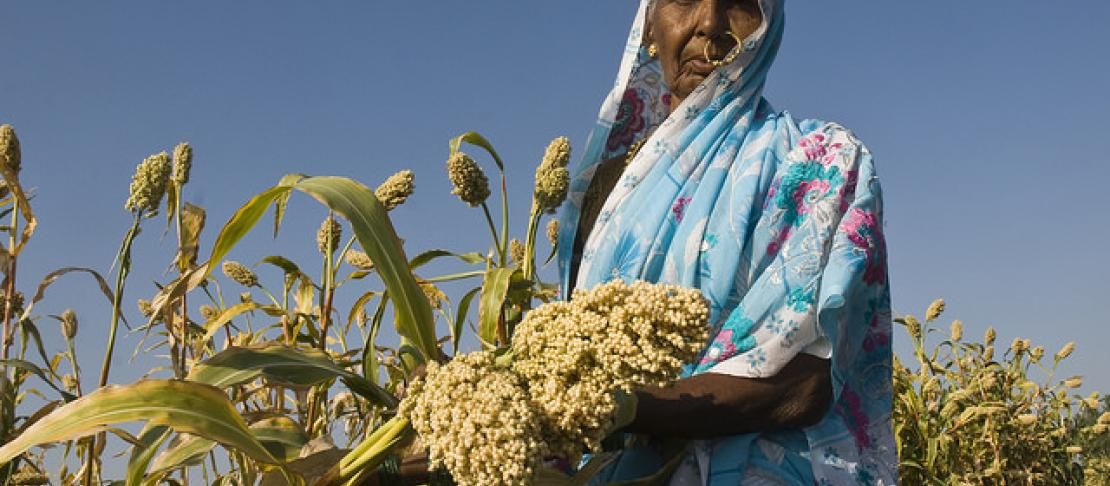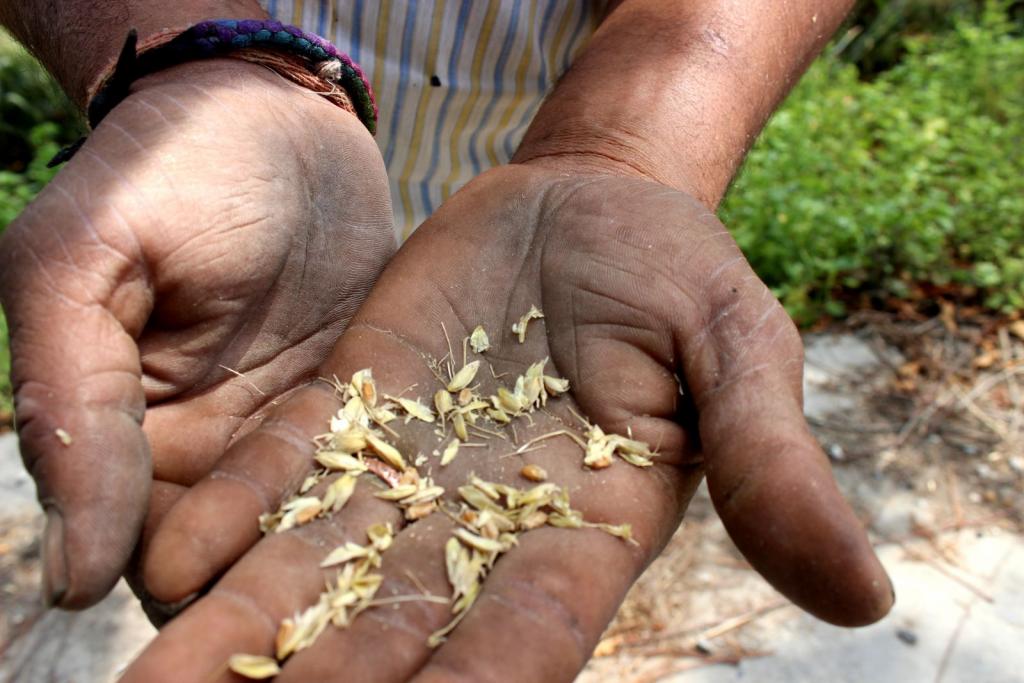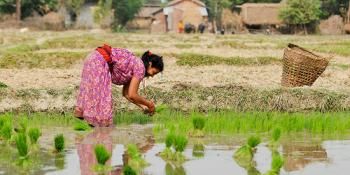Better designed weather-based insurance holds promise for Maharashtra farmers

The State Government will implement insurance products with improved rainfall triggers that can help soyabean, rice, cotton and pearl millet farmers cope with climate risks.
When unexpected rains lashed India this April, city-dwellers welcomed the respite from the heat. But the mood was starkly different in the countryside. Farmers watched helplessly as crops died just before the harvest.
Rajesh Birsingh, 41, from Haryana, was in despair after three acres of ripened wheat stalks were flattened in the unseasonal downpours. “This is completely unexpected. About 40 percent of the harvest is gone. It is a huge loss to my earnings and I have debts to pay. Unless there is some compensation, I will face a lot of problems,” he said.
Ideally, farmers like Birsingh should be able to claim insurance as a way to tide over bad weather events, which are increasing in their frequency and impact.
[Read: Sudden rainfall leaves Maharashtra farmers worried;
Rain misery for Indian farmers]

Birsingh shows the hollow husks from the wheat crop destroyed in unseasonal rains this spring.
Photo: Dharini Parthasarathy/CCAFS
In India, about 30 million farmers are subscribed under crop insurance schemes, of which nearly 38 percent have weather-based index insurance coverage. But agriculture insurance is far from popular. Often, farmers see low value in insurance because of delays in settling claims, lack of financial understanding, bad experiences with agents and poor reach in rural areas, among others.
[Read: Less than 20 % farmers take crop insurance]
High transaction costs, claims disputes and operational bottlenecks also deter insurance companies from catering to the farm sector. The government of India, however, has made an expressed commitment to make crop insurance more accessible to farmers.
Better rainfall triggers for better insurance products
Our research attempts to provide a win-win situation for all.
As part of our research on how farmers can be insulated from climate risks, the CGIAR Research Program on Climate Change Agriculture and Food Security (CCAFS) in South Asia has been working on developing improved rainfall triggers. Triggers are the threshold beyond which crop growth begins to suffer, and when payoffs to affected farmers can be determined. These rainfall triggers were developed for key crops (rice, pearl millet, soyabean and cotton) in Maharashtra state.
The Government of Maharashtra has confirmed that the improved insurance products will be implemented in the kharif (winter) season of 2015 and will protect several thousand farmers from the vagaries of the weather.
An improvement over existing models
CCAFS South Asia Program Leader Pramod K Aggarwal says: “The underlying principle behind the research is the synergistic use of statistical, crop growth simulation modelling and optimization techniques. Rainfall triggers were defined and optimized for each district level. These triggers were further optimized to ensure that the claims ratio remains within acceptable limits and premiums are also within the government specified limits. The final product is an improvement on what is currently available and attempts to provide a win-win situation for all - farmers, the insurance industry as well as the government.”
As such, the new insurance product, with smarter rainfall triggers, is designed to keep everyone’s interests in mind.
A more detailed study on the research methodology and analysis behind this work will be published soon.
Read more:
Research outcome: Improved index insurance benefits more than 50,000 farmers in Bihar and Andhra Pradesh
Working Paper: Index insurance arms farmers against a changing climate
Pramod K Aggarwal is CCAFS South Asia Programme Leader. Paresh Shirsath is Postdoctoral Research Felllow with the CCAFS programme. Edited by Dharini Parthasarathy, South Asia communications specialist


